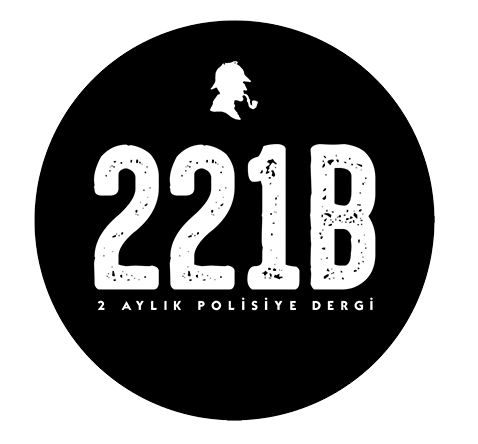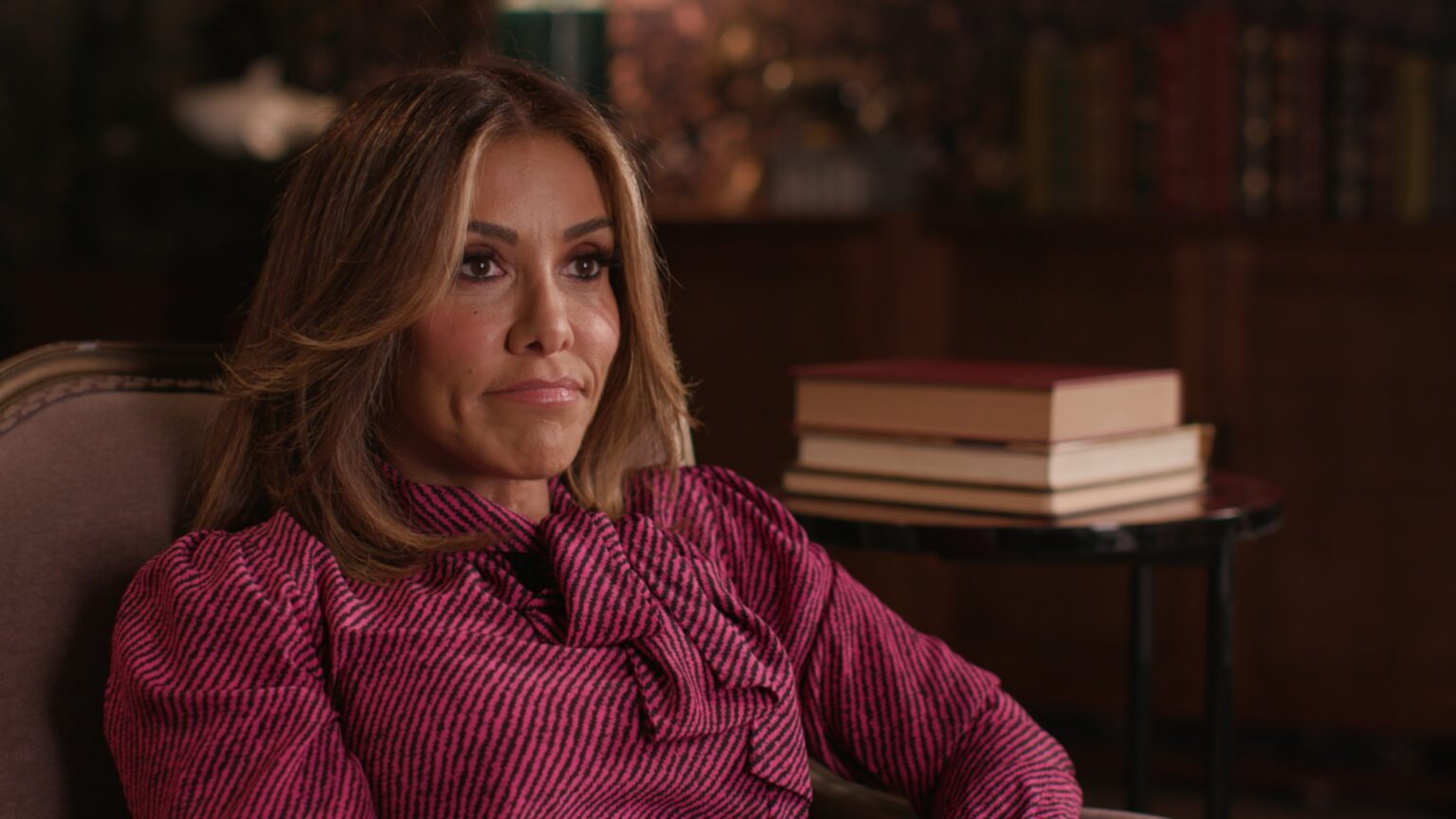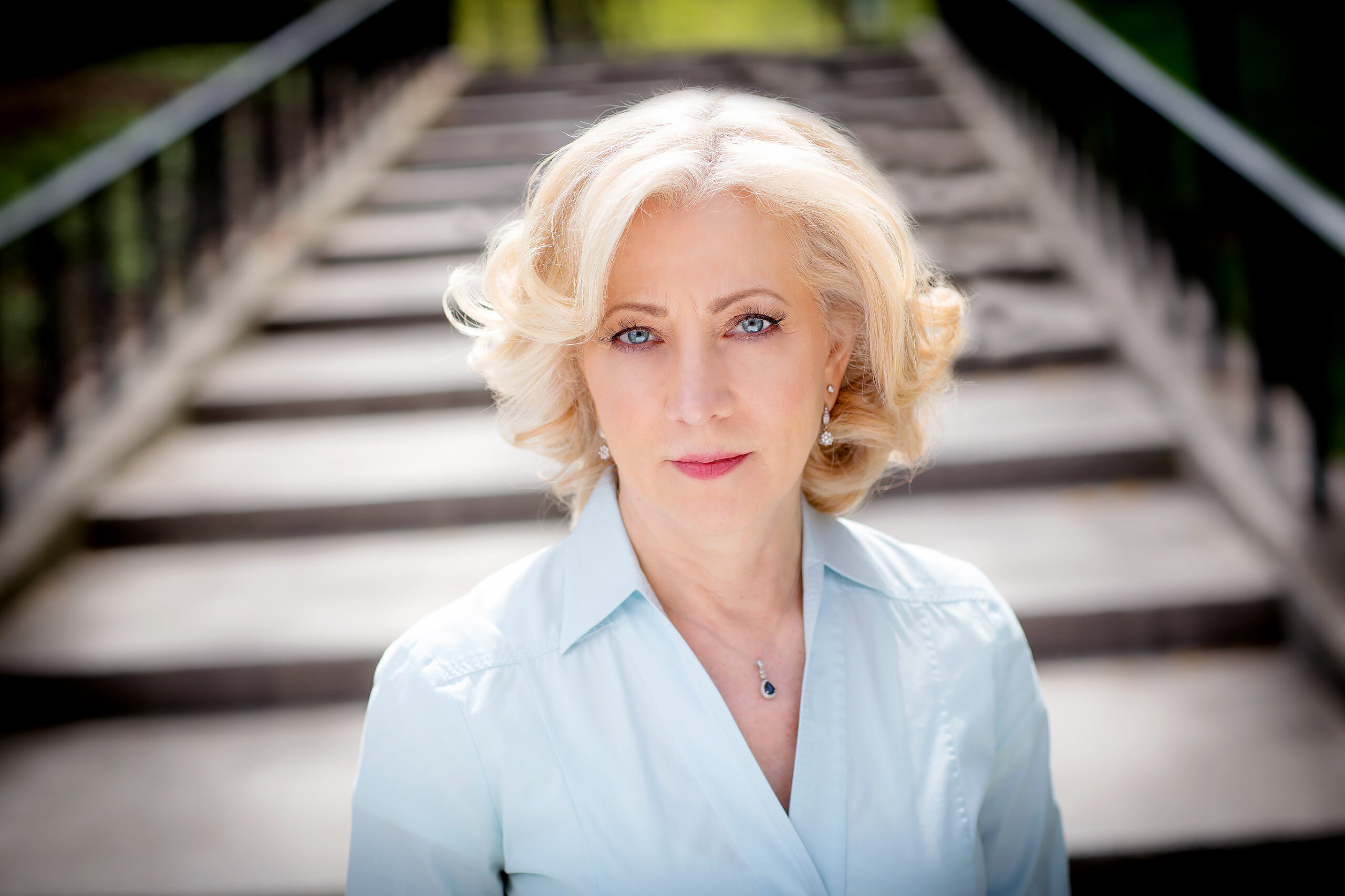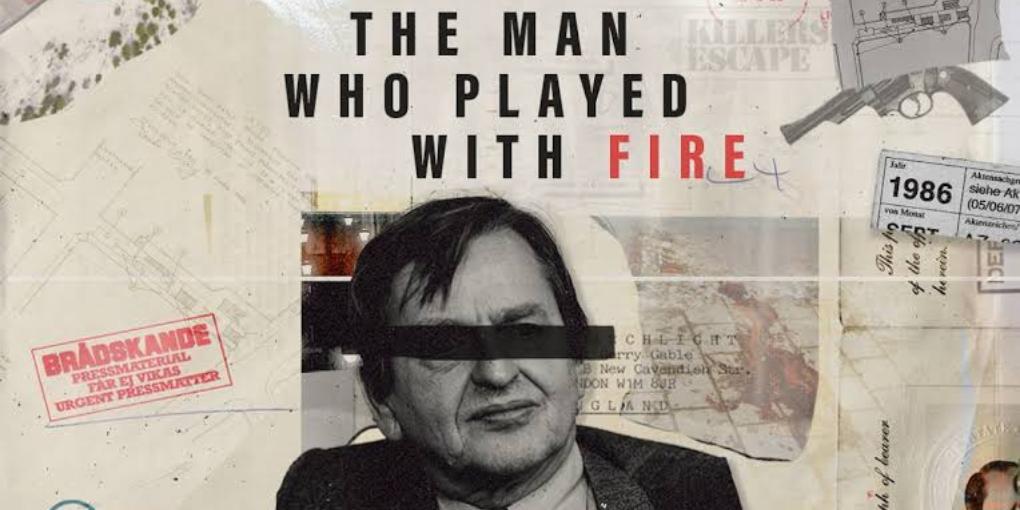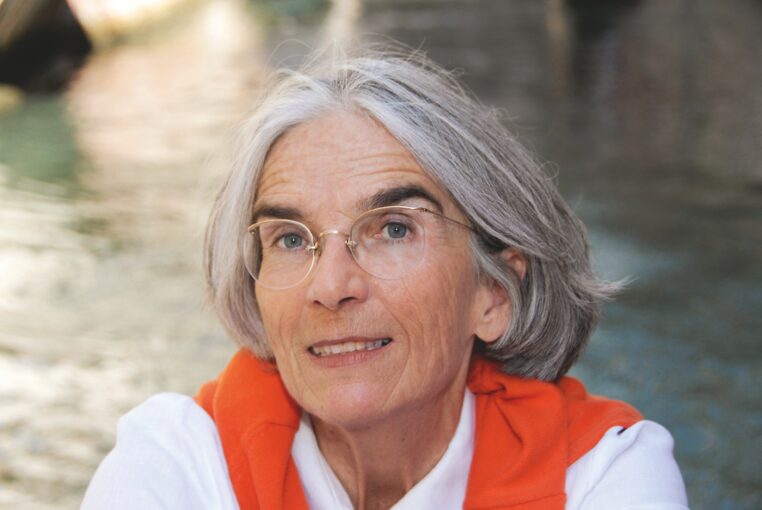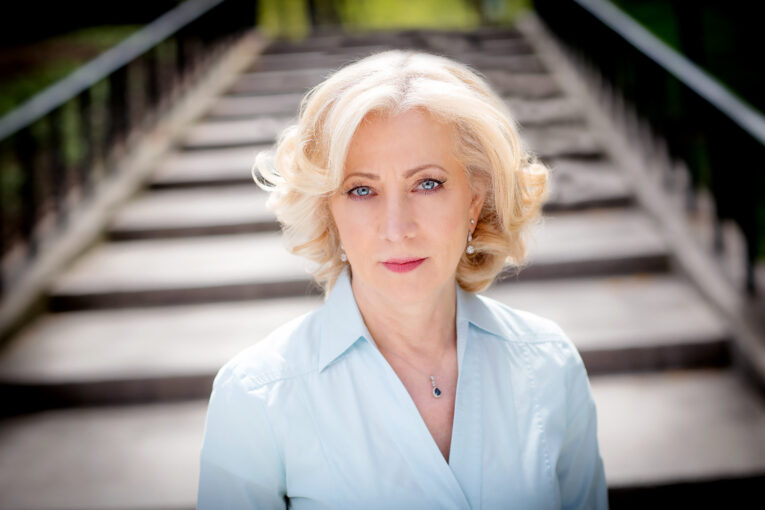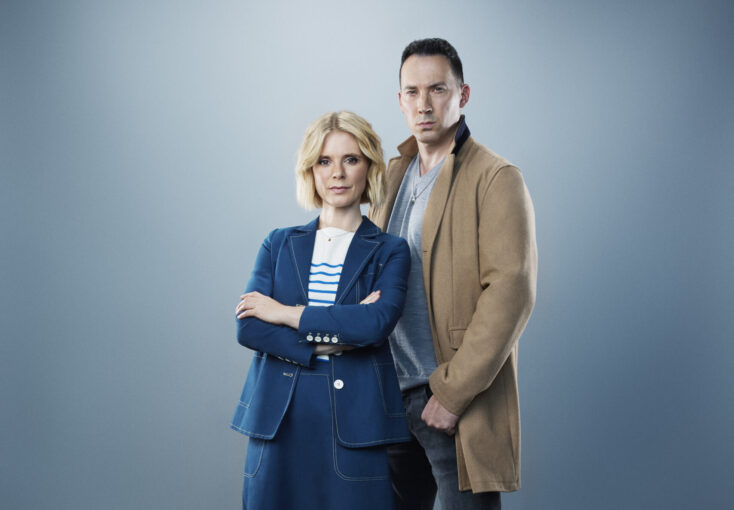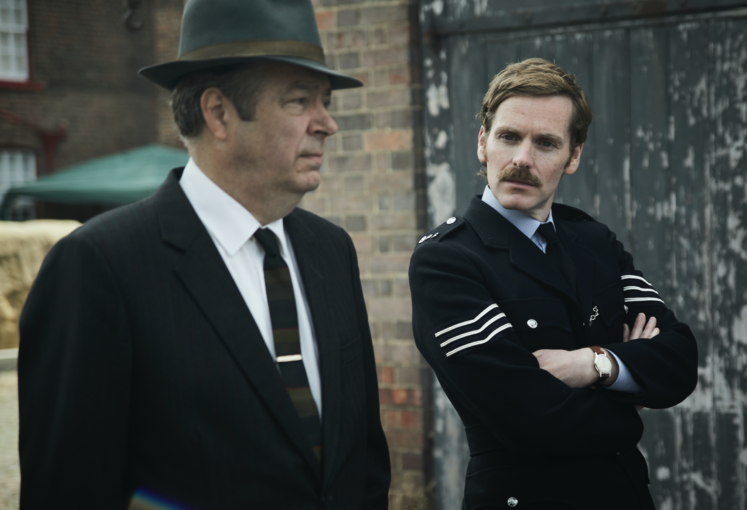Death by Fame, which stands out from other true crime shows by focusing on famous criminals and victims and has built its own fan base, is preparing to return with Season 2.
This Discovery Investigation production, which examines a different murder from show business in each episode, will meet with viewers once again on March 15, 2024. In the new season of Death by Fame, many topics are covered, from the murder of rap legend Jam Master Jay to the highly suspicious death of James Brown, one of the greatest soloists of all time. Since I had the chance to watch the episodes in advance, I can say that the new season of Death by Fame will at times horrify you with brutal murders, at other times puzzle you with questions like “Was James Brown murdered?” and in the end it will excite you as much as the most thrilling crime movies!
A few days ago, I met with the host of the program, lawyer Sara Azari, over the internet to discuss the new season of Death by Fame. I had guessed that Ms. Azari was of Iranian origin from her surname, but I was surprised when she greeted me in Turkish with “İyi akşamlar!” (Good evening!). It turns out that her father stayed in Türkiye for a long time, and she is in love with Istanbul, so to speak. As you can tell, our conversation started pleasantly from the very beginning. When the topics we talked about were also interesting, we had a really enjoyable interview. We talked about all the things we wondered about the new season of Death by Fame, and not only that, we also explored the relationship between crime and fame extensively.
Have a good read!
Sara Azari: ” More opportunities come with more pressure. But not everyone can handle that pressure and succeed. I think that’s the recipe for disaster.”
First of all, congratulations on the new season! I would like to start our interview by talking about the production process of Death by Fame. Can you tell us how you investigated the cases in the series and how you handled the evidence?
Sara Azari: I’m very lucky because I work with a great team, both at Investigation Discovery and at AMPLE Productions, the production company. They create this show together, and there are so many people involved in all the different pieces that go into the final production… That’s why the final product is so good.
I’m not part of the process of choosing the cases that we work on for Death by Fame, but they definitely did a great job. Once the cases have been selected, the production company and Investigation Discovery team also decide together which aspects of the cases will be explored. They ask, “What’s important for the audience in this case?” And they start making the show around that idea. Then a lot of research is done. The AMPLE Productions team finds court documents, scans the news about the case, talks to family members of the deceased, and so on. Then, they research people who were in the neighborhood at the time of the incident. After putting these files together for each case, they share them with me. I look at it from a legal perspective. I’m a lawyer. I’m not a producer. So, I look at it from that angle, in depth. I ask the questions “What happened in this case?” and “What happened in this murder or this investigation?” and then I bring a legal perspective to it.
Then we put all this together and start shooting the episodes one by one. These are essentially long interviews. I’m not part of the location selection, but the production team does a great job of finding these very cool and dark places in my city, Los Angeles. Of course, a script is not written. But I know what’s expected of me; I know the topics I have to talk about. I would have already done my research.
This program is not only about justice and criminals but also about show business. Do you think that if the celebrities that you are talking about in this program didn’t live in a country like the United States of America (USA), where showbiz is at its heart, but in a country where showbiz is smaller, would they still be part of these crimes? In other words, is it American show business that led all these celebrities to this dark fate?
Sara Azari: It’s a very interesting and good question. Obviously, there are a lot of crimes in the United States. We have problems. Mental illness is very common. I don’t think we’ve done a good job of dealing with our mental health. All of these things affect people’s behavior, whether they’re famous or not. But when you’re in an environment like Hollywood – not necessarily Hollywood in Los Angeles; it could be another celebrity capital like New York – you face more pressure and more opportunities. More opportunities come with more pressure. But not everyone can handle that pressure and succeed. I think this is the recipe for disaster.
Which case in Season 2 of Death by Fame has affected, surprised, or horrified you the most?
Sara Azari: That’s actually a complicated question because in the new season of Death by Fame, there are different episodes for each part of your question. I think the one that upset me the most was Jam Master Jay’s story because I’m a big hip-hop fan. This episode, which we called “Off the Record,” was the big finale of the season for us. I grew up with hip-hop, and Jay was murdered in the music studio. Nobody wanted to talk to anybody. Everybody was there; they saw who did it, but nobody wanted to come forward because there was a code of silence in the rap world at the time. What saddens me about this story is the fact that fame is so temporary: one minute you’re huge, you’re making a lot of money, but the next minute, you have to become a drug dealer to make a living. I think that’s a very sad reality. It’s really hard to understand how someone that we idolize, that we think is perfect, suddenly becomes a drug dealer or a gang member or whatever. I was really moved by this topic.
But what horrified me the most was the case of Blake Leibel. A man who abused one of his many girlfriends, a girl who was pregnant with his child, and eventually scalped her. The way he killed her is horrible. I’ve represented all kinds of people who have committed brutal murders, but I’ve never seen anything like that in my entire career. I didn’t even know what I was supposed to say. It was unfathomable to me. I didn’t sleep for a couple of nights preparing for that episode.
In terms of giving an important message, I can mention the episode “Legal Diva”, the murder of Loredana Nesci. It deals with an issue that is not only a problem in the US but in all cultures and is actually a bigger taboo in other cultures: domestic violence. Loredana Nesci was a reality show star. She was a lawyer who got into the reality show business. She was stabbed to death. Her boyfriend, with whom she was living, her husband out of wedlock, was convicted of stabbing her to death. This reinforces the idea that domestic violence behind closed doors can result in death. The woman was not very nice to him. I think her husband was fed up with her, and he did what he did. He claimed it was self-defense. It didn’t work in court. I know that excuse well. Even though I’m American, I’m originally from Iran. In Iran, they don’t talk about domestic violence; they don’t think about it. They think they can hit a child as a way to correct their behavior. But that, or what happens between a husband and wife, is actually a physical assault. So I think this episode is also very important for international viewers as well. It highlights the idea that domestic violence can kill. Therefore, it has a very important message.
You said you represent all kinds of people. Let’s talk about how famous criminals and victims interact with the public and how they are perceived. How different are they from ordinary criminals and victims in that sense?
Sara Azari: Yes, I represent all kinds of clients, but because I’ve been in Los Angeles for so long, I have a referral system that brings me celebrities and high-profile people from time to time. Sometimes, it’s not the celebrity themselves; it’s their spouse, their brother, or their manager. But a relative of a celebrity is also from that world. So, dealing with celebrities is a different matter… To represent them, you need to adopt a very holistic approach. Because you’re not just dealing with their legal problems: they have managers, they have public image, they have advertisers and public relations agencies… If they have one DUI on their record, insurance companies won’t insure them. It’s a complicated process. I can pursue the means of justice for an ordinary, non-celebrity client. I can be creative with the law. I can put them in a rehab center and make them do whatever they need to do to come back to court and say they’re fine. When it’s a celebrity, I don’t know. If they’re taking something and they’re worried about other people in the treatment center seeing them or finding out that they have a drug problem… You know, magazine reporters might show up around the rehab center and so on. They can get worried about these things. So when it comes to celebrities, there are so many layers. And that creates a complicated situation. Because sometimes they think they are more special, but they are not. All the laws apply to them, too.
By the way, another problem with celebrities is that the legal system uses them to send a message. So now, they are often punished more severely because they are big names, and the justice system wants to be loud. For example, have you followed the case of Alec Baldwin? Baldwin should not be charged. He will win the case. He will not be found guilty. I’m speaking from a legal point of view. But in this small town, in this small place in Santa Fe, and in this courthouse, they’re using him to set an example that you can’t come here and shoot a movie, kill somebody, and walk away doing nothing. You know. Celebrities also suffer injustice because they are famous.
That’s very clear, thank you. We’re getting to the end of our interview. What do you think are the key features of a good true-crime documentary?
Sara Azari: I’m very sensitive to misinformation. Because I think it’s terrible for the victims. I think it’s also terrible for the defendants who haven’t gone to trial yet… That’s why I’m very sensitive to showing the real facts in a documentary or an interview. That said, what people want is mystery. They don’t want answers, they want questions. For example, in the James Brown episode, even though I was doing what I’ve always done, I was like, “Oh my God!” All these years, I thought he died of a heart attack. I had no reason to think it was murder, but I didn’t know that a nurse saw two people enter the hospital ward, and shortly after that, James Brown died, and they didn’t do an autopsy on him. You want to leave the viewer with these questions and make them think that this is a possibility.
And what is your final judgment on the James Brown case?
Sara Azari: Who knows! Everybody wanted to get money out of him. He was very clear about the point that he was going to leave all his money to a charity to educate poor children and not give it to anybody. James Brown had a lot of children, and they’re still suing over the inheritance today. So, if you are rich and you have money, there are more reasons to want you dead. Well, money is a reason to kill. That’s always in the back of my mind. There is also the fact that there is no autopsy. I don’t know how it is in Türkiye, but autopsies are very invasive. So I can understand why the families don’t want an autopsy. But because there is no autopsy, there is no toxicology report to find out if there was an overdose in the hospital. Without that, I cannot say for sure how he died. I don’t know how he died.
I understand. In Death by Fame, your subjects are always celebrities. Does their fame make it harder for you to shoot this program? I mean, would it be easier to shoot a true crime show with ordinary people?
Sara Azari: No, because ordinary people don’t have extraordinary stories. The stories of the people in this program are extraordinary. Otherwise, they wouldn’t be part of this program. James Brown was a legendary singer. Jam Master Jay was an icon in the rap world. But even with the rising stars, there was something unusual. Like the guy who scalped his girlfriend. This guy had a bright future in Hollywood; why would he do anything? If you don’t have that extraordinary element, then I don’t think you’re going to get to the question, “Why would this guy commit a crime?” I would expect an ordinary person, for instance, a gangster living in the worst part of my city, to commit a crime. But when it comes to a celebrity, you don’t expect such things from them. Because there’s this idea that celebrities can do no wrong, that they have a bright future. Why would they mess everything up? Why would they commit a heinous crime?
All right. Then let’s end our interview with one last question:
Have you ever thought about shooting this program in another country? For example, it could be Norway. The Norwegian black metal scene has been the subject of a lot of crime. Türkiye or Iran would also be interesting.
Sara Azari: First of all, I don’t know what it’s like in those countries. In the US, we have a lot of freedom to do research, to get information through the Freedom of Information Act, and to actually produce something, and we’re very lucky in that sense. I don’t know what the laws are in other countries and what kind of material we can access. For this program, we need images and people who are willing to talk about all of this. But I know that true crime is very popular in many countries, and Discovery Investigation has a presence in those as well. But I’m not involved in the decision-making process on this.
Thank you very much for taking the time. Is there anything you would like to add or say to your viewers in Türkiye?
Sara Azari: I think the biggest message I would give to the world and Türkiye is, when you watch these episodes, don’t just think, “This is something that’s happening in America.” The world is becoming more and more interconnected and smaller. With social media, we are all connected. We are all accessible. We are all vulnerable. I think if you look at our program from that perspective, you will get more out of it. I will come back to the episode on domestic violence, but you don’t watch this program like you watch a movie. I mean, you don’t think, “This is fiction.” You know that these things happen in real life, and I don’t think these things are unique to us Americans only.
Click here to read the interview in Turkish.
